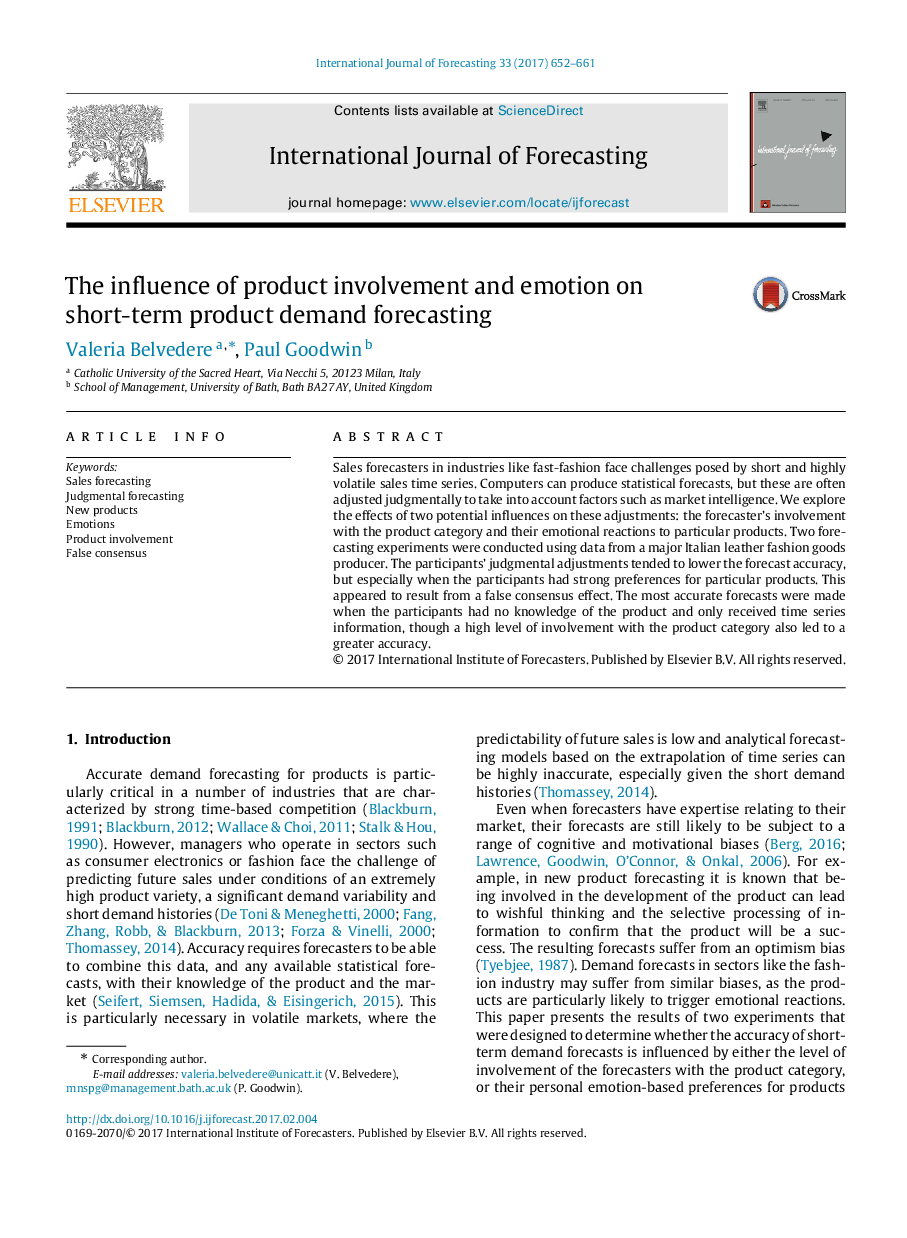| Article ID | Journal | Published Year | Pages | File Type |
|---|---|---|---|---|
| 5106425 | International Journal of Forecasting | 2017 | 10 Pages |
Abstract
Sales forecasters in industries like fast-fashion face challenges posed by short and highly volatile sales time series. Computers can produce statistical forecasts, but these are often adjusted judgmentally to take into account factors such as market intelligence. We explore the effects of two potential influences on these adjustments: the forecaster's involvement with the product category and their emotional reactions to particular products. Two forecasting experiments were conducted using data from a major Italian leather fashion goods producer. The participants' judgmental adjustments tended to lower the forecast accuracy, but especially when the participants had strong preferences for particular products. This appeared to result from a false consensus effect. The most accurate forecasts were made when the participants had no knowledge of the product and only received time series information, though a high level of involvement with the product category also led to a greater accuracy.
Keywords
Related Topics
Social Sciences and Humanities
Business, Management and Accounting
Business and International Management
Authors
Valeria Belvedere, Paul Goodwin,
